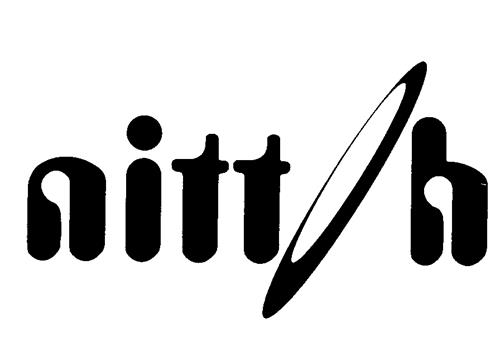But of the remaining fifty-four chapters, almost all fit naturally into the framework described in Character Strengths and Virtues: their connection to mental health is implicit, and implicitly for a very wide agenda for it which (like eudaimonism itself) stretches from matters of concern to basic justice out to forms of flourishing that are clearly beyond anything we could plausibly require of ourselves and others. With respect to fully functioning adults, it then seems unremarkable to treat health as one thing in a list of instrumental goods. All of this is promising, though it is very far from a tidy, thoroughly unified conception of complete health. The existing philosophical literature on the nature of happiness or a good life is replete with discussions that mention health in passing. They need habilitation directed toward acquiring or strengthening such capabilities. That work supports preventive clinical medicine and wellness regimens of many sorts, as well as rehabilitationboth physical and psychological. eudaemonism: [noun] a theory that the highest ethical goal is happiness and personal well-being. https://www.health-improve.org/eudaimonistic-model-of-health/ Category: Health Show Health Physical Activity, WellBeing, and the Basic Psychological Needs Health (2 days ago) WebThe SDT model of eudaimonia was supported and MVPA had a moderate to small relationship with eudaimonic motives. Wars, epidemics, and widely publicized examples of ill health often bring these sorts of positive health concerns to light in a vivid way. Psychic affirmation and psychic flourishing. Medical quackery and pseudoscience to prevent moral degeneracy in individuals is appalling enough when confined to the treatment of a few isolated individuals. The notion of complete health has been the source of a good deal of criticismincluding the charge that, if taken seriously in a public-policy sense, it would medicalize every aspect of distributive justice or governmental social programs. And it is standardly recognized that such levels of positive health need to be high enough to be maintained in a reasonable range of challenging environments. That connection will guarantee that the habilitation framework, with its emphasis on health and healthy agency, is sufficient for well-being with respect to basic justicethough not sufficient with respect to an ideal of perfect well-being. The mood propensities relevant to happiness are forms of emotional resilience (or what I will later call homeostatic resilience): they dispose us to experience positive, rather than negative, central affective states (13338). This shows itself pointedly in work by demographers, economists, sociologists, and medical scientists who investigate the correlations between health negatively defined and a long list of other factors: socioeconomic status, education, work, recreation, environmental factors, occupational hazards, social norms, so-called lifestyle behaviors, and various measures of subjective well-being. The editors long-range ambition is to develop an equivalent, on the positive side, to the American Psychiatric Associations widely used and regularly updated reference work on mental illness and psychopathology. Such agency, when it is healthy, may begin in infancy with largely egoistic agendas, but they are quickly coordinated with the demands of sociality. Eudaimonistic Health: Complete Health, Moral Health (2 days ago) WebThis chapter develops the notion of eudaimonistic healtha conception of physiological and psychological good as well as bad health. Adults who meet neither the criteria for flourishing or languishing are scored as moderately mentally healthy (90). (5) And if the same thing is true about purely psychological happiness (psychic affirmation or psychic flourishing), it too will be part of the subject matter of basic justice. Obvious objections to be met include cases in which such experience is not authentic (e.g., because it is a psychosomatic fantasy provided by an Experience Machine); is self-defeating or otherwise perverse; is not congruent with fully informed desires or preferences or choices; is not congruent with basic justice, and so forth. Haybron, in The Pursuit of Unhappiness, provides an illuminating philosophical analysis of a purely psychological account of happiness, meant to be faithful to its ordinary sense in which our emotional and affective states generally are given prominence. This is crucial because central affective states, negative and positive, are persistent and perhaps even quasi-dispositional also: they tend to perpetuate or even exaggerate themselves or related states. Here positive psychology illustrates something problematic for present purposes, since it seems to loosen its contact with health science and practice. Optimal progress toward perfect well-being is not the issue here. There is a certain inertia to central affective states that peripheral affects seem to lack: they dont vanish without trace the instant the triggering event is over. Inevitably, then, the mental health agenda within positive psychology will be aligned loosely with the eudaimonistic tradition in naturalistic ethics. As previously noted, it is clear enough that a eudaimonistic conception of health tracks a scientific conception of moral development that is (at a very basic level) common to plausible normative theories generally; it is not simply eudaimonism that recommends basic prosocial, cooperative, and productive traits and behaviors. (2) So if it turns out that some elements of good health (call them physical and psychological strengths) are necessary for removing or sustaining the absence of illness, those factors of good health will also be part of the subject matter of basic justice. The subordination of health found in the organizational scheme of Character Strengths and Virtues is thus not implausible. This is useful support for the conception of health that I am advancing here with respect to basic justice. In this viewpoint, health is a condition of actualiza- tion or realization of the person's potential. The discussion throughout this section is indebted to. Such a conception of health would further define possibilities and necessities for habilitation that are matters of concern for any normative theory of justice. This conception of health, while similar to a much-criticized definition offered by the World Health Organization, is distinct from it, Such satisfaction may range from an affectless absence of regret to intensely positive satisfaction with the way ones life has gone, overall. One is habilitative, by giving attention to the ways in which such injuries can either be prevented or made survivablefor example, by getting agreements between belligerents not to use chemical or biological warfare; by improving the speed with which traumatic injuries are fully treated; by the use of better body armor. Eudaimonic well-being or eudaimonia is a concept of human flourishing that could have many positive implications for the practice of health promotion. The habilitation framework and its connection to health. The social: the community, the presence or absence of relationships"We suffer when our interpersonal bonds are sundered and we feel solace when they are reestablished" (Engel, 1997) As long as we focus on a purely negative conception of healthdefined as the absence of disease, disorder, damage to vital functions, interrupted development, and physical or psychological distresswe will leave out many matters that are of the first importance to both science and ethics. Philosophy and Medicine in Antiquity, in Michael Frede. This includes, but is not limited to, the sort of teleological naturalism found in ancient Greek eudaimonism. It simply acknowledges the greater usefulness of some rather than other philosophical ancestors. Exam View - Chapter 01 - Nur1390 - Chapter 01: Health Defined - Studocu eudaimonistic model subsumes all previous models and defines health as general well-being and self-realization maslows hierarchy of needs this model redirects thinking away from mechanistic view of man toward a more holistic view (both are necessary for understanding the nature of life) eudaimonistic model holistic view Think of attempts to give physiological, genetic, or evolutionary justifications for brutally repressive social policies with respect to sex, race, social status, poverty, and disability. Furthermore, research and clinical work on even this limited form of positive health seem fragileoften considered along with other enhancements that are only indirectly related to genuine health matters. This congruence between health and virtue comes in some measure from the fact that eudaimonistic theories have a wider conception of health than many of us now use, at least in health policy contexts. Some of the debate in bioethics about the definition of health has been about whether there is a purely descriptive, value-free, scientific definition of health, or whether health is implicitly a normative concept connected to notions of what is good for humansand ultimately what is ethically good. PDF Models of Health - Cdhn Ancient eudaimonistic theorists were of course aware of the importance of making health-related traits strong rather than vulnerable. The soft-pedaling of the purely affective dimension of happiness comes in part from the pressure philosophers are under to respond to several important types of objections to incautious accounts of affective well-being: the objection that strong affective experience on either side of the ledger frequently distorts sound perception, deliberation, judgment, and decision making; the objection that decision making with a strong affective component can overwhelm virtuous intentions and virtuous traits of character, leading to behavior that is irrational, or inconsistent with justice; the objection that ordinary conceptions of happiness must be corrected to make clear that genuine well-being and happiness require that justice and the moral virtues generally take priority over pleasant affective states; and. ), Daniel Haybrons discussion of some of these issues in, Habilitation, Health, and Agency: A Framework for Basic Justice, Concepts and Conceptions: Basic Justice and Habilitation, The Circumstances of Habilitation for Basic Justice, Health, Healthy Agency, and the Health Metric, Eudaimonistic Health: Complete Health, Moral Development, Well-Being, and Happiness, The World Health Organizations definition of health, Health as inseparable from basic virtue and well-being, A Unified Conception of Health, Positive and Negative, Well-being and the public health tradition, The Science of Mental Health, Happiness, and Virtue, Positive psychology beyond health and basic justice, Positive psychology for mental health and well-being, Health, well-being, and lives that go well, Good Health as Reliably Competent Functioning, Healthy Agency as the Representative Good for Basic Justice, Healthy Agency and the Norms of Basic Justice, Healthy Agency and Its Behavioral Tendencies, Relevance, Influence, and Prejudice Revisited, 'Eudaimonistic Health: Complete Health, Moral Development, Well-Being, and Happiness', Archaeological Methodology and Techniques, Browse content in Language Teaching and Learning, Literary Studies (African American Literature), Literary Studies (Fiction, Novelists, and Prose Writers), Literary Studies (Postcolonial Literature), Musical Structures, Styles, and Techniques, Popular Beliefs and Controversial Knowledge, Browse content in Company and Commercial Law, Browse content in Constitutional and Administrative Law, Private International Law and Conflict of Laws, Browse content in Legal System and Practice, Browse content in Allied Health Professions, Browse content in Obstetrics and Gynaecology, Clinical Cytogenetics and Molecular Genetics, Browse content in Public Health and Epidemiology, Browse content in Science and Mathematics, Study and Communication Skills in Life Sciences, Study and Communication Skills in Chemistry, Browse content in Earth Sciences and Geography, Browse content in Engineering and Technology, Civil Engineering, Surveying, and Building, Environmental Science, Engineering, and Technology, Conservation of the Environment (Environmental Science), Environmentalist and Conservationist Organizations (Environmental Science), Environmentalist Thought and Ideology (Environmental Science), Management of Land and Natural Resources (Environmental Science), Natural Disasters (Environmental Science), Pollution and Threats to the Environment (Environmental Science), Social Impact of Environmental Issues (Environmental Science), Neuroendocrinology and Autonomic Nervous System, Psychology of Human-Technology Interaction, Psychology Professional Development and Training, Browse content in Business and Management, Information and Communication Technologies, Browse content in Criminology and Criminal Justice, International and Comparative Criminology, Agricultural, Environmental, and Natural Resource Economics, Teaching of Specific Groups and Special Educational Needs, Conservation of the Environment (Social Science), Environmentalist Thought and Ideology (Social Science), Pollution and Threats to the Environment (Social Science), Social Impact of Environmental Issues (Social Science), Browse content in Interdisciplinary Studies, Museums, Libraries, and Information Sciences, Browse content in Regional and Area Studies, Browse content in Research and Information, Developmental and Physical Disabilities Social Work, Human Behaviour and the Social Environment, International and Global Issues in Social Work, Social Work Research and Evidence-based Practice, Social Stratification, Inequality, and Mobility, https://doi.org/10.1093/acprof:oso/9780199917549.001.0001, https://doi.org/10.1093/acprof:oso/9780199917549.003.0004.
eudaimonistic model of health
24
May
































